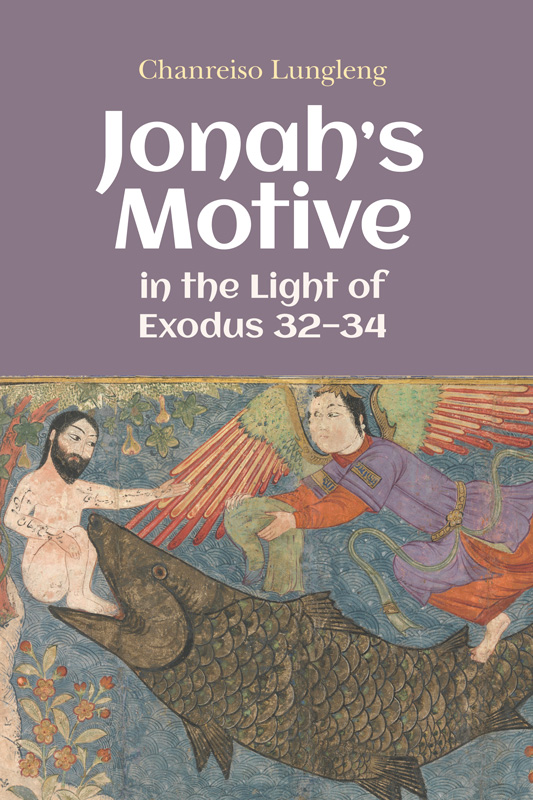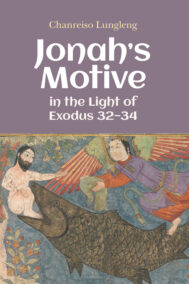Jonah’s Motive in the Light of Exodus 32–34
Published: Sep 2025
£70.00
Chanreiso Lungleng offers a favourable insight into the motivation and concerns of Jonah. This monograph pivots on the significance of Jonah 4.2 with the contention that the allusion to Exodus 32–34 unveils Jonah’s motive—zeal for God’s glory—which is otherwise assumed in the narrative.
Although the book of Jonah has received much attention in recent years—with many describing Jonah using terms such as ‘bigoted nationalist,’ ‘chauvinist,’ ‘jingoist,’ ‘anti-prophet,’ ‘satirical comic character,’ ‘hypocrite,’ and others—Lungleng argues that Yahweh’s attribution of the virtue of ‘pity’ to Jonah in Jonah 4.10 provides a key insight into Jonah’s character. Lungleng’s fresh exploration of Jonah’s character against the backdrop of Exodus 32–34, leads to several interesting discoveries. Collectively, these insights form a coherent exposition of this prophetic book. This provides the foundation for understanding that Jonah’s interactions with Yahweh and other characters in the narrative are motivated by a concern for the defence of God’s glory. And yet where Jonah’s zealous concern is for maintaining God’s reputation, Lungleng interprets the interchange with Yahweh, as divine guidance to Jonah that God’s glory is most radiantly revealed in showing compassion—even to Nineveh, a Gentile city—rather than in the protectionist approach of the prophet.Jonah’s Motive in the Light of Exodus 32–34
£70.00
Chanreiso Lungleng offers a favourable insight into the motivation and concerns of Jonah. This monograph pivots on the significance of Jonah 4.2 with the contention that the allusion to Exodus 32–34 unveils Jonah’s motive—zeal for God’s glory—which is otherwise assumed in the narrative.
Although the book of Jonah has received much attention in recent years—with many describing Jonah using terms such as ‘bigoted nationalist,’ ‘chauvinist,’ ‘jingoist,’ ‘anti-prophet,’ ‘satirical comic character,’ ‘hypocrite,’ and others—Lungleng argues that Yahweh’s attribution of the virtue of ‘pity’ to Jonah in Jonah 4.10 provides a key insight into Jonah’s character. Lungleng’s fresh exploration of Jonah’s character against the backdrop of Exodus 32–34, leads to several interesting discoveries. Collectively, these insights form a coherent exposition of this prophetic book. This provides the foundation for understanding that Jonah’s interactions with Yahweh and other characters in the narrative are motivated by a concern for the defence of God’s glory. And yet where Jonah’s zealous concern is for maintaining God’s reputation, Lungleng interprets the interchange with Yahweh, as divine guidance to Jonah that God’s glory is most radiantly revealed in showing compassion—even to Nineveh, a Gentile city—rather than in the protectionist approach of the prophet.


